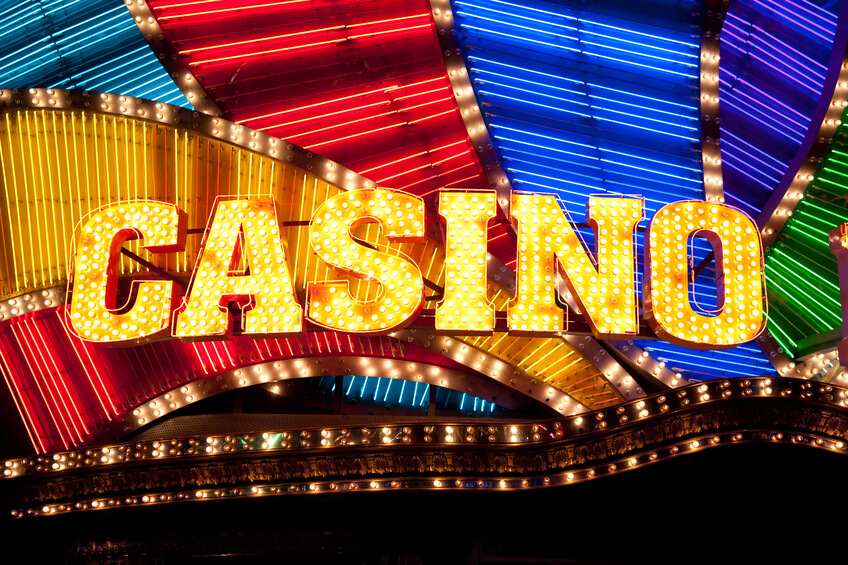When we think of gambling activities, the initial images that often come to mind are those of rotating wheel devices, poker chips clinking on fabric tables, and dice rolling across a gaming surface. While numerous consider these games as mere pastimes fueled by luck, a more profound exploration reveals a captivating blend of tactics, expertise, and community engagement that raises them well beyond simple chance. Regardless of whether you are a seasoned player or a inquisitive newcomer, understanding the nuances of these activities can significantly enhance your enjoyment and appreciation.
Gambling games have developed over hundreds of years, with various cultures contributing to their rich backgrounds and different forms. From the intricate strategies of blackjack to the bluffing tactics in card games, players engage in a contest of wits as much as a risk on numbers. This exciting interplay between luck and skill creates a exciting atmosphere that draws millions to gambling establishments worldwide. As we explore the realm of card activities, we will reveal the strategies that can shift the odds in your favor and the social aspects that make these games a popular choice for entertainment and interaction.
A Approach of Casino Gaming
Casino gaming frequently combine a blend of ability and chance, which makes them fascinating for players who like a test. Every game has its unique set of guidelines and tactics that can influence the results. For example, in games like 21, players are obliged to use strategies like counting cards and understanding the odds to make smart decisions. This skill set can significantly improve their victory potential, distinguishing experienced players from beginners who may rely solely on chance.
In contrast, titles such as the roulette may seem to be purely based on chance, but tactical thinking can also play into the equation. Participants can choose between different wagering tactics, such as the Martingale system, in which they increase their wagers after a loss. This approach can create a more controlled way to the activity. Grasping the probabilities of specific bets can also assist participants make better decisions on the table, demonstrating that even games of luck, strategy can enhance the enjoyment.
Furthermore, poker is notable as a game that strongly focuses on tactics. In contrast to most casino games, the game of poker merges skill, mental acuity, and luck. Players must not only focus on the cards they are dealt but also consider their opponents behavior and betting patterns. Mastering principles like table position, the odds of the pot, and interpreting bluffs is essential for winning. This depth of tactics in the game of poker often creates to a more immersive encounter for players, as their decisions and skills greatly impact the game’s results.
Understanding Probability and Ratios
In the world of casino activities, likelihood and odds hold a critical role in determining a gambler’s possible consequences. Every match has its own collection of principles that define how the chance of winning or losing is measured. For example, in games like blackjack, participants have a chance to affect their odds through planning, whereas in games like the wheel, the results are purely dictated by luck. Comprehending how these chances are calculated can substantially affect how a gambler deals with the game.
Odds are typically expressed in two formats: fractional and decimal. Fractional odds show the ratio of the amount gained to the amount bet, whereas decimal ratios show the overall payout for a winning bet, which includes the initial bet. For instance, if a game has odds of 5 to 1, this means that for every one unit staked, a gambler could win five dollars if successful. Learning how to read these odds enables gamblers to assess their potential winnings and formulate more educated decisions during play.
Players should also be aware of the house edge, which is the casino’s built-in advantage over the gamblers. Each match has a different advantage, and understanding this idea is important for controlling one’s hopes and funds. Games with a lower house edge, such as 21 and baccarat, typically offer better odds for players compared to activities like slots and lottery. By understanding the connection between probability, odds, and the casino advantage, players can improve their gaming experience and strategize more efficiently.
The Aspect of Casino Table Games
Casino games at gaming establishments are often seen as a hub of social interaction, bringing players together in a shared experience that extends far past the mere act of gambling. The atmosphere at a blackjack table can be electric, with players engaging not only with the game itself but also with one another. hướng dẫn mmlive Joy, cheers, and, sometimes, playful teasing create connections that improve the overall enjoyment of the gaming experience. This communal aspect can turn a alone endeavor into a dynamic social event, making casino games particularly appealing.
One of the fascinating elements of table gaming is the way it cultivates camaraderie among players. Whether it’s collaborating to beat the dealer at a craps table or sharing stories between hands in a poker game, the environment encourages interaction. Participants often share tips or tactics, creating a sense of community that enhances the fun. This social dynamic can make new players feel welcomed and less daunted by the competitive nature of gaming. As the game continues, friendships may form, leading to a sense of connection that keeps players coming back to the table.

Moreover, the social aspect of gaming at tables extends outside just the participants. Dealers play a vital role in facilitating interaction and maintaining the flow of the game. mmlive Their ability to engage gamblers with friendly conversation and their expertise in running the table can create an inviting atmosphere. This relationship between participants and dealers adds another layer of enjoyment, where players feel connected not only to one another but also to the staff. Such interactions are often what make the experience memorable, as participants leave with stories to tell and relationships made, reinforcing the notion that table games are truly about more than just chance.